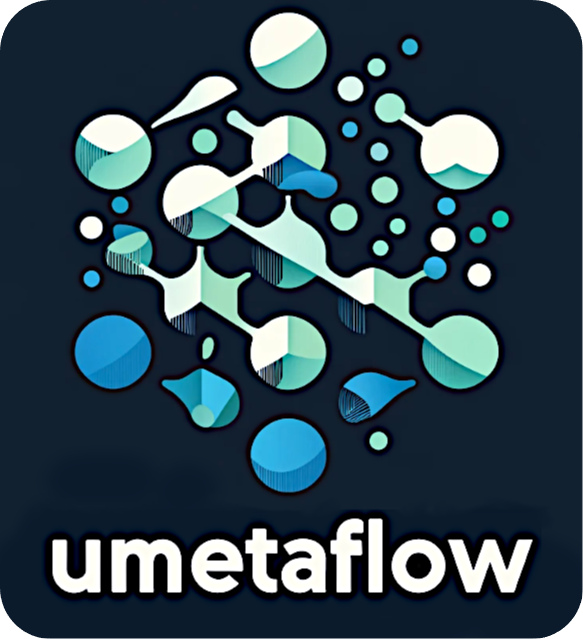OpenMS offers an open-source C++ library (+ Python bindings) for LC/MS data management, analysis and visualization. It empowers rapid development of mass spectrometry related software. OpenMS is freely available under the three clause BSD license and runs under Windows, macOS and Linux. The OpenMS members have a strong commitment to creating an open, inclusive, and positive community. Please read the OpenMS Code of Conduct for guidance on how to interact with others in a way that makes the community thrive.

This app offers the powerful UmetaFlow [1] pipeline for untargeted metabolomics in an accessible user interface. Raw data pre-processing converts raw data to a feature quantification table by feature detection, alignment, grouping, adduct annotation and optional re-quantification of missing values. Features can be annotated by in-house libraries based on MS1 m/z and retention time matching as well as MS2 fragment spectrum similarity as well as with formula, structure and compound classes by SIRIUS. Furthermore, required input files for GNPS Feature Based Molecular Networking can be generated. Besides the untargeted pipeline, this app offers some additional features, such as an interface to explore raw data and metabolite identification and quantification via extracted ion chromatograms based on exact m/z values generated conveniently by an included m/z calculator. For downstream processing statistical analysis can be performed within the app or in the popular FBmn STATS GUIde

This is a longer card with supporting text below as a natural lead-in to additional content. This content is a little bit longer.

This is a longer card with supporting text below as a natural lead-in to additional content. This content is a little bit longer.

This is a longer card with supporting text below as a natural lead-in to additional content. This content is a little bit longer.
Some quick example text to build on the card title and make up the bulk of the card's content.
Go somewhereSome quick example text to build on the card title and make up the bulk of the card's content.
Go somewhereSome quick example text to build on the card title and make up the bulk of the card's content.
Go somewhereSome quick example text to build on the card title and make up the bulk of the card's content.
Go somewhereSome quick example text to build on the card title and make up the bulk of the card's content.
Go somewhereSome quick example text to build on the card title and make up the bulk of the card's content.
Go somewhereSome quick example text to build on the card title and make up the bulk of the card's content.
Go somewhereSome quick example text to build on the card title and make up the bulk of the card's content.
Go somewhereSome quick example text to build on the card title and make up the bulk of the card's content.
Go somewhere